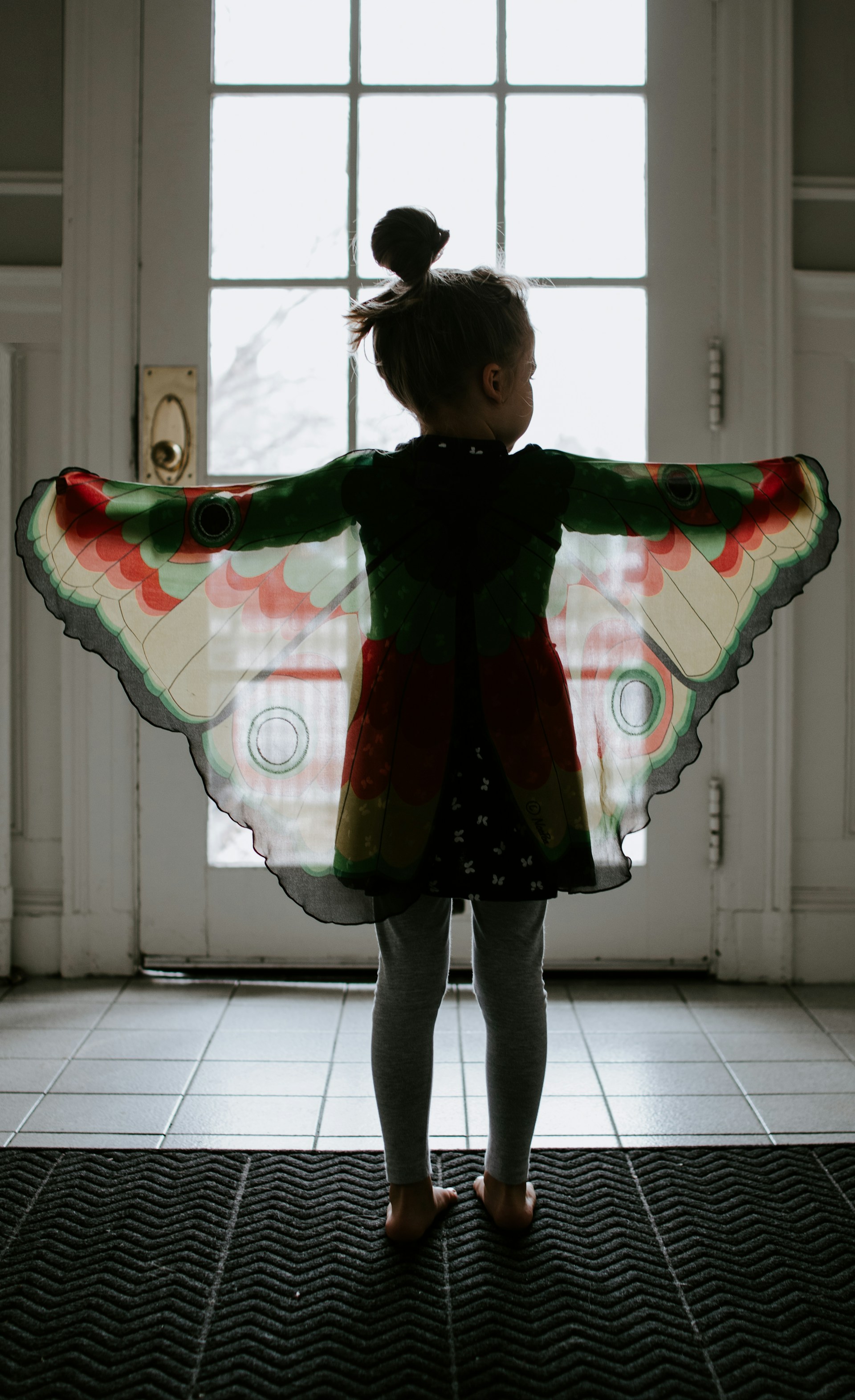
Children Need to Play! Here's Why
4.2. All things play - Part 2. Play is not just about fun and games. It is vital to children's development
ISSUE 4
VJ Tlakula
9/26/20257 min read


All Things Play – Part 2
Now that we have a basic understanding of play, let us dive deeper into the subject and see what we can really learn from play and why play is so important.
The mind of the child displayed
One of the most valuable elements of play to us as adults is its ability to give us insight into the minds of children - without having to sit them down for an interview. It is through play where children really open up. Even if they do not have the exact words to express how they are feeling, you will often get an idea through how they play.
Beyond simply being fun, play can show us how children understand and navigate the world around them. It also provides an outlet where words and complex thought might fail. Because children are still developing language abilities and still learning how to think complexly and deeply, play can become a useful tool for them to work through what they experience even if they are not aware that they're doing it.
Even though they might lack the ability to properly express themselves, they are still very much aware and subconsciously actively processing the world around them. Play becomes part of that processing experience.
Like I said in Part 1, psychologists even use play to do interventions with children, either playing with them or observing their play. When children are playing, they are able to subconsciously project their feelings and experiences in a safe way onto an inanimate object or situation. Play shows us that children have a deeper understanding of social conventions and things happening around them than we think they do and sometimes more than adults even do.
Not all play is about children processing life, but that element when we look closely can show us their minds. Observing any type of play will give us insight into the child and their development either way. Things like how they play, who they play with, their reactions to winning, losing, or sharing, the characters they choose to embody are all useful bits of information for us.
These are all things we can observe to learn about their personalities, temperaments, and cognitive, emotional, and social development. The best part is that it's usually simply fun for the children. They are not always trying to give us this insight, but it's right there, ready for us to observe from the get-go.
Social aspects of play
Play, even play that is done alone plays a crucial part in children’s social and emotional development and there is evidence that parts of the brain involved in understanding others are active when children are playing certain activities.
Play is one way that children are socialised. Children play more socially at a time when they are navigating the space between becoming more independent from their primary caregiver and looking for social validation outside of their caregiver. Therefore, play helps them to mature in these areas.
As they develop, it helps them to begin navigating social relationships beyond their primary caregivers, like with their siblings or peers at school. They learn to navigate and resolve conflict, follow rules, learn to share toys, and learn that others may think and feel differently to them.
This learning can equip them with greater understanding and confidence to navigate their world. Play helps children not to fear the world around them as they adventure, explore, and test theories.
It is also the space where they act out the requirements of their society (e.g. in mastery or socio-dramatic play), where they test out their understanding of the world. They navigate social rules and conventions through play, and you will often see them acting out things we see in society through their play.
Think about times where you may have played dress up, house and cooking with your friends or played race cars. When children are involved with play, especially imaginative, practice, and symbolic play, they are often actively placing themselves in a role and situation, and imagining how that should be responded to.
Developmental Benefits of Play
Besides the social and emotional aspect, children benefit a lot from play physically and cognitively. The way children play links to their stages of physical and cognitive development.
Cognitive development (their brain's ability to process and behave in an increasingly complex way) occurs when children are learning to be in the minds of others through made-up scenarios, and when they have different experiences of pain or victory in play. As their brain physically grows, and they explore the world more, it learns to incorporate more complex ideas and understandings of how things in the world work which further promotes cognitive development.
When children are playing, they are often moving and exploring the world (locomotive and exploratory play). This gives them a better understanding of how things work in the world, their position in the world at a physical and sensory level (parietal lobe), and how to use their bodies in relation to themselves and the world. Simply said, they learn to better understand their bodies and how they fit in the world around them.
Young children struggle to stay in one place when they are young. While this may be frustrating for us, it’s actually often good for them. Their developing bodies need to move and strengthen, and they need to be able to explore (though not ALL the time!).
There are even benefits for learning. Children learn best when they are having fun and don’t even really know that they are learning (we all do). This is why teachers may incorporate game elements to their lessons in preschool, to help the children learn without it being tedious. It helps them to learn through experience. And we all know that a lesson learnt through experience sticks with you more than a lesson learnt theoretically.
Contrary to the idea of play as a distraction, some types of play can teach children focus and self-control through focusing on a single activity for a long amount of time or learning to play within the boundaries and rules of a specific game. A child is more likely to listen because they want to be included and enjoy.
All these elements, physical, cognitive, emotional and social are constantly working and developing together in the various ways that children play.
Creating spaces for play
One of the best things about children is their ability to play anywhere and with anything. They see opportunities for play wherever they are. All they really need in that is support. So, we know from Part 1, that play is protective for children. It can help them to escape their current realities.
Some caregivers might feel like they need to buy all the toys or place children in schools with a lot of activities to help them play. However, sometimes these things can become too much for children and overwhelm them.
Caregivers should strive for small pockets of play with their children, even if it’s just a few minutes in a day. And to try to be consistent in playing with children. That play can help to do what even formal education and expensive resources sometimes can’t. Again, caregivers who play with their children can help to regulate them and bond with them.
Regulating play
Throughout this blog series I have emphasised, and will continue to emphasise, how children’s development needs to be mediated by their caregivers. How they need stimulation, support and guidance. This applies to every single area of their lives. I mentioned how children's play gives us a ready insight into their minds and development. This is a resource we should not neglect as it helps us identify and correct issues or encourage other good things before it is too late.
There should always be boundaries to make the play space safe and conducive for the child and caregivers should explore what kind of play is best and preferred for their child and make an effort to encourage and regulate it. Play should not be the only thing that they do. There should be parameters.
Pay attention to who your children play with and what they do. Some of the things permitted when children play can lead into who they become as adults. Children are also learning a lot from their peers when they play. They exhibit what they see and so do their peers. Remember that one of the ways children learn is vicariously (Albert Bandura), so they will often imitate each other.
When children play together, they come from different backgrounds and have witnessed different things. Because children will manifest what they have seen in their play, some children manifest violent, disruptive, vulgar, or sexual behaviours and such behaviours can be passed on to other children.
When children play without supervision, they may exhibit behaviours which they shouldn’t, but because nobody is there to correct them, they just continue doing it. For example, ss much as we love them, children are generally naturally very selfish and egotistical, so they may end up playing poorly with other children if not guided.
Therefore, children left to themselves for long enough cause chaos and very rarely does anything good ever come from that. Children cannot just be left to play without supervision or caregivers not taking an interest in their play.
A responsible adult being present when children play is able to address and redirect such behaviours. In their innocence, children do not always know that they’re doing something wrong, they need to be told.
Sometimes children do misbehave during play on purpose though so someone needs to be there to tell the difference (because children can also be serious liars in saving their own skin if another child gets hurt).
It's not about being a helicopter parent or being controlling as some people might fear. Regulation and guidance help ensure that these behaviours don’t go unaddressed.
The Takeaway
There is so much to say about play and we have discussed a lot here, with still more to cover. However, the most important takeaway should be that play is a vital part of children’s development. I hope that this part has made that quite clear. It needs to be encouraged and supported with guidance and we will see so many advantages for them. There are so many benefits to play, so again I encourage you: play with the children in your life.
I hear it's good for adults too!
Share your Comments Below!
Please feel free to reach out with any comments, questions, and child-related stories
Celebrating childhood and development
© Ntsako Wholeness and Joy in Childhood 2025. All rights reserved.
Copyright Vutlhari Joy Tlakula 2025. All Rights Reserved.


